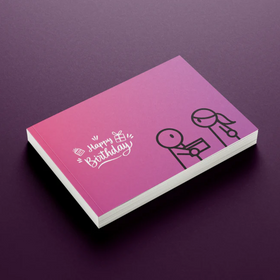on all orders

When Is Raksha Bandhan 2023?
Raksha Bandhan 2023: Wed, Aug 30, 2023
Raksha Bandhan is a significant Hindu festival that celebrates the bond between siblings. This festival has been celebrated for centuries and holds immense cultural importance in India. The festival takes place on the full moon day of the Hindu month of Shravana, which usually falls in August.
The celebration involves sisters tying a sacred thread or 'rakhi' on their brothers' wrists as a symbol of love and protection. In return, brothers promise to protect their sisters from any harm and give them gifts as a token of appreciation. The festival is not just limited to biological siblings; it can also be celebrated between cousins or close friends who consider each other as siblings. Understanding when Raksha Bandhan occurs is crucial for planning and preparation, especially for those who live abroad or outside India.
The Significance of Raksha Bandhan in Indian Culture
The cultural significance of Raksha Bandhan in India is rooted in the tradition of sisters tying a sacred thread on their brothers' wrists as a symbol of love, protection, and commitment. This festival is celebrated with great fervor by Hindus all over India and Nepal. Raksha Bandhan translates to "bond of protection,"which signifies the deep bond between siblings.
Raksha Bandhan rituals involve sisters performing aarti, applying tilak on their brother's forehead, and tying a rakhi on his wrist. The brother then offers sweets or gifts to his sister as an expression of gratitude and affection. This ceremony reinforces sibling bonding and strengthens family ties.
Historically, Raksha Bandhan has been celebrated for several centuries across different regions of India with varying customs. In some parts, it was customary for queens to send rakhi threads to neighboring kings as a sign of friendship and loyalty. Over time, this tradition evolved into a celebration that focuses primarily on the bond between siblings. Today, Raksha Bandhan is also celebrated by non-Hindus who wish to honor the special relationship they have with their siblings.
Understanding the Hindu Lunar Calendar
One way to understand the Hindu lunar calendar is by recognizing its use of a unique system that incorporates both solar and lunar cycles. This means that the calendar is based on both the movement of the sun and the phases of the moon, unlike the Gregorian calendar which relies solely on solar cycles. The Hindu lunar calendar is used for religious festivals, astrological calculations, and determining auspicious dates for various events.
The Hindu lunar calendar consists of twelve months called "lunar months"or "tithis". Each month begins with a new moon day and ends on a full moon day. The duration of each month varies from 29 to 30 days depending on when the new moon occurs. The Hindu lunar calendar also accounts for leap years which occur every three years when an additional month called “Adhik Maas” is added to align with solar cycles.
Lunar calendar calculations involve precise observations of celestial movements such as planetary positions, eclipses, and equinoxes. These observations are crucial in determining auspicious dates for religious ceremonies such as weddings, housewarming ceremonies, and other important events. Understanding this unique system can help one better appreciate the significance behind various Hindu festivals including Raksha Bandhan which falls on a full moon day in the month of Shravana according to this lunar calendar.
When to Expect Raksha Bandhan in 2023
In the year 2023, those following the Hindu lunar calendar can expect a significant festival to coincide with a full moon day in the month of Shravana. This festival is called Raksha Bandhan and is celebrated across India and Nepal. The date for Raksha Bandhan in 2023 will be calculated according to the Hindu lunar calendar, which takes into account both the positions of the sun and moon.
The exact date for Raksha Bandhan in 2023 will depend on various factors such as geographical location, tradition, and cultural practices. However, it usually falls around August or September in the Gregorian calendar. This festival commemorates the bond between siblings, where sisters tie a sacred thread (Rakhi) on their brother's wrist as a symbol of protection against evil forces.
Lunar calendars have been used by many cultures throughout history as they are based on natural astronomical cycles that repeat each month. In Hinduism, lunar months are divided into two fortnights - Shukla Paksha (waxing phase) and Krishna Paksha (waning phase). The calculation of dates using this system has created an intricate web of festivals and rituals that not only mark religious occasions but also connect people to their heritage through shared traditions.





Leave a comment